Renewable Energy Project Advances Gender Lens Equity in Honduran Community

Across Central America, the number and size of renewable energy power plants has grown exponentially in recent decades. In Honduras particularly, hydroelectric power plants have sprung up as the government looks for sustainable ways to generate energy and economic stability for communities across the country.
Despite the environmental benefits renewable energy projects offer, conflicts between communities and project developers persist. Activists and concerned citizens protest environmental degradation and the lack of shared economic benefits for residents. The communities selected to house new power plants are most often rural and indigenous, and without proper consultation from project developers, community members are left in the dark. They fear hydroelectric plants will disrupt their access to water, negatively impact their health and land rights, and erode local landscapes.
Further, gender inequality persists throughout the energy sector, despite mounting evidence that women and girls experience the greatest impacts of climate change, according to the UN. For instance, women and girls are at the greatest risk of experiencing violence due to climate-related conflicts and are often far removed from the decision-making process around climate interventions. Women also account for less than one-third of jobs held across all renewable energy sectors globally.
If women and girls, particularly those that live in the communities surrounding energy projects, are excluded from participating in, or consulting on, renewable energy project design and development, they may ultimately end up disadvantaged by the project instead of benefitting from the economic and energy resources renewable projects offer.
A Closer Look: PHP Energy
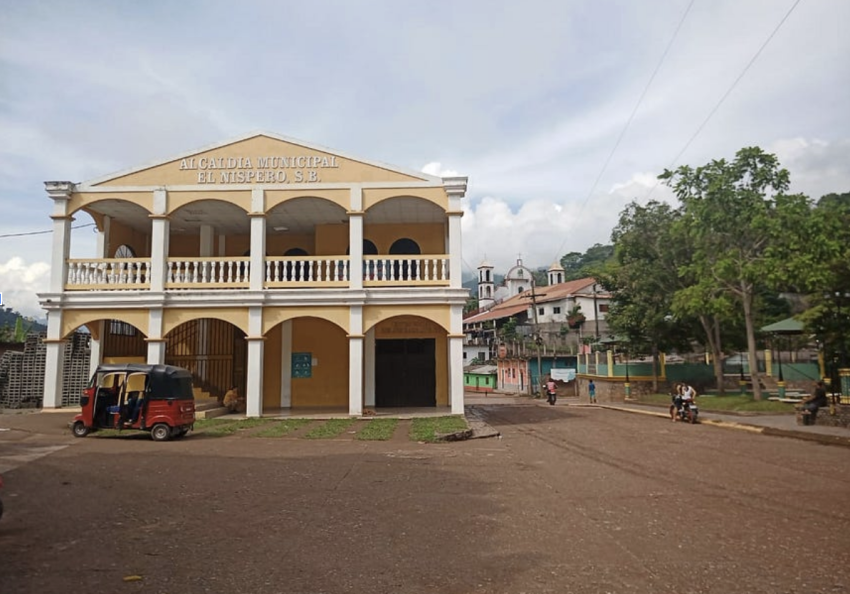
Caption: Municipal building en El Níspero, Honduras.
Photo Credit: Deetken Impact
In northwest Honduras, the community of El Níspero has lived next to a state-owned 22-megawatt hydroelectric power plant since the 1980s. In 2018, a second 6-MW plant was built, El Níspero II, which leveraged the existing dam infrastructure while providing generation capacity during periods of lower flow rates. This second phase of the project is privately owned by a consortium called PHP Energy, which supports 12 jobs on an ongoing basis and generates enough energy to power 8,000 households and displace nearly 12,000 tons of greenhouse gas annually, equivalent to taking 2,500 cars off the road.
Although PHP Energy had supported community initiatives in the past, the team lacked a systematic and gender smart approach to community engagement. “Yes, PHP Energy was doing great things for the community — like supporting local reforestation efforts or donating supplies to nearby schools and hospitals — and yes, the staff was aware that gender equality is important, but there was no one really acting upon or communicating about these principles”, explains Alexa Blain, co-founder and managing partner of Deetken Impact, an investment fund manager operating across Latin America and the Caribbean.
“Gender smart energy solutions ensure the inclusion of women throughout all stages of the project lifecycle, as leaders, employees, customers, suppliers, and, importantly, as community members,” states Rachel Murphy, Impact and Gender Officer at Deetken Impact. “This not only ensures project benefits are optimized and equitable, but also reduces the risk of community unrest that can interrupt operations.” However, without support, SMEs like PHP Energy don’t always have the resources, bandwidth, or expertise to take on new gender initiatives on their own.
In Honduras, USAID seeks to promote renewable energy and environmental conservation as well as strengthen the participation of marginalized groups in local and national governance. In support of these country-specific goals, USAID’s Gender Equality and Women’s Empowerment Hub (USAID GenDev) and USAID INVEST sought to partner with private sector technical assistance providers, like Deetken Impact, to work with a select pool of local small- and medium-sized enterprises (SMEs) to enhance their gender smart business practices, community engagement tactics, and broader advocacy of gender equality.
A Holistic Approach to Gender-Smart Interventions
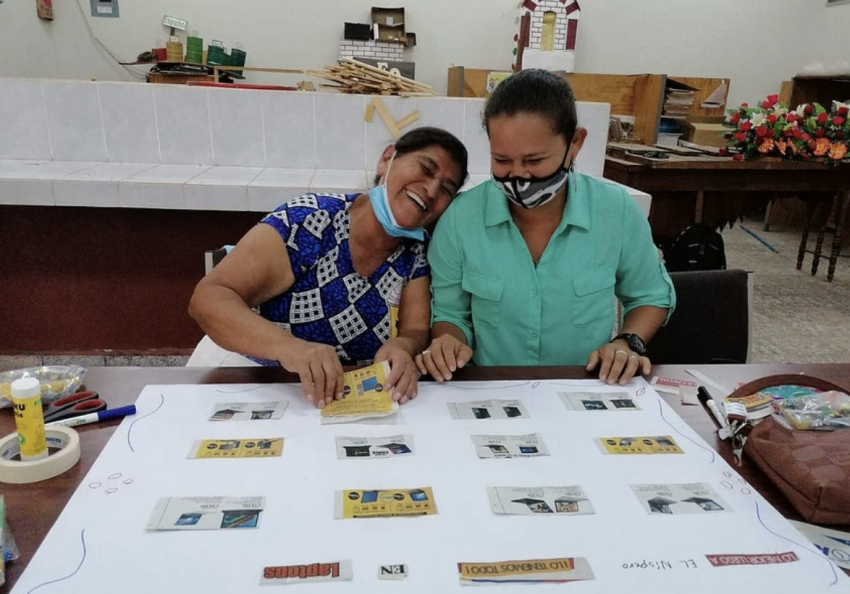
Caption: Local entrepreneurs at Ilu Women’s Empowerment Program workshop.
Photo Credit: Deetken Impact
Deetken Impact and partner Pro Mujer, a non-profit specializing in supporting women entrepreneurs, work together on the Ilu Women’s Empowerment Fund (Ilu Fund), a leading gender lens investment fund in Latin America and the Caribbean that is supporting 27 companies to accelerate their financial impact and gender goals.
Through USAID GenDev, the partners developed an extension of the Fund, the Ilu Women’s Empowerment Program, which focuses on providing technical assistance to portfolio companies, fundraising of blended finance capital, and strengthening the gender lens investing ecosystem with knowledge dissemination and advocacy. Since PHP Energy had made several direct contributions to the community in the past, the Ilu Fund identified a tremendous opportunity to work with them to bring a gender lens to their community engagement efforts.
“With the Program, we took the time to assess each SME selected from our portfolio and understand where they were in the journey towards improving their gender, social and environmental practices,” explains Blain. They did just that with PHP Energy. The Ilu Fund team set out to assist the SME in developing a gender smart community engagement strategy to reduce operational risk for hydroelectric power plant and maximize its economic impact on local women and girls.
Taking Gender Specific Action
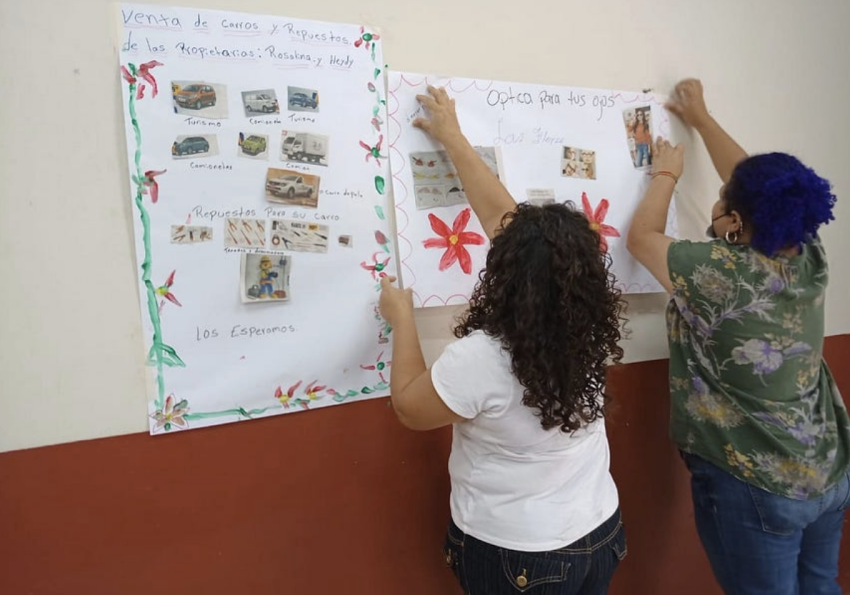
Caption: Workshop participants identifying identify gender gaps and challenges faced by the local, women entrepreneurs.
Photo Credit: Deetken Impact
Finding that there was sparse demographic and socioeconomic information about El Níspero, Santa Bárbara, and little to no awareness around gender smart business practices within the PHP Energy staff, the Ilu Fund team first conducted a field study reaching more than 400 households in the El Níspero community. Importantly, they also led a team training for the PHP Energy management team to strengthen their awareness and knowledge of gender concepts and gaps.
The study revealed that El Níspero residents had little awareness around PHP Energy and what the company does, and most local respondents weren’t aware of any community-focused initiatives or support. In fact, it was discovered that residents associated the project with the ENEE, the Honduras national electricity company, which has a poor reputation nationwide due to service interruptions, price increases, and low coverage.
“Some of the work we did was focused on building those communication channels to get PHP Energy’s name out there,” says Murphy. “Our goal was to build their reputation within the community, while also helping them to develop a sustainable gender-smart business strategy that would meaningfully benefit the community moving forward.”
The field study revealed that more than half of the El Níspero residents live on less than 1,000 Honduran Lempiras ($40 USD) per month. “This may not seem like a gendered issue, but it is,” says Magali Lamyin, Managing Partner at Deetken Impact. “We know that when women are economically empowered, economies grow.” According to the International Monetary Fund, greater gender equality boosts economic growth and leads to better development outcomes and supports economic resilience. Anchored by the field study findings, the Ilu Women’s Empowerment Program team determined that PHP Energy could promote equitable economic growth in the community by empowering women entrepreneurs, and in turn strengthening the company’s image and relationship with the community.
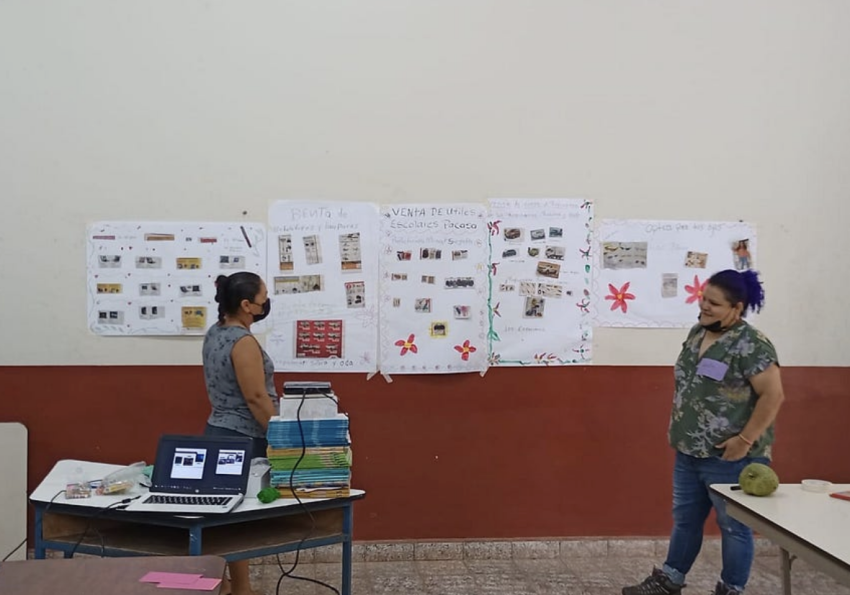
Caption: Workshop attendees envision a future for their businesses.
Photo Credit: Deetken Impact
As a next step, the team led an in-person workshop with ten women entrepreneurs from surrounding communities. The session centered on identifying gender gaps and challenges faced by the entrepreneurs in communities and businesses. “We hoped to empower them as entrepreneurs and in turn promote growth in their businesses,” explains Lamyin. The session served to establish a direct connection between PHP Energy and the women entrepreneurs and pave a path for future support and collaboration. Based on observations from the workshop and the community assessment, two groups of women entrepreneurs, both working with food and beverage products, were identified as recipients of support from the PHP Energy team moving forward. By establishing continuity in support to these high-potential entrepreneurs, PHP Energy demonstrated its long-term commitment to El Níspero.
Finally, the Ilu Fund team led PHP Energy in developing a gender-sensitive community engagement action plan focused on supporting local women entrepreneurs and expanding partnerships and communication within the commun
PHP Energy Finance DirectorThe data about gender inequality is mind-blowing
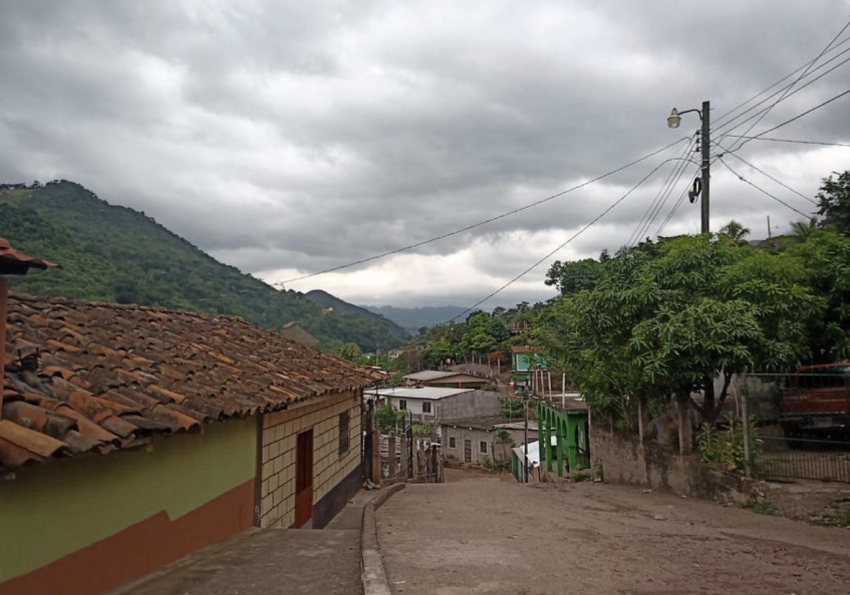
Caption: Mountainside community of El Níspero
Photo Credit: Deetken Impact
Initial results from the Ilu Fund’s engagement are promising, with the PHP Energy leadership feeling invigorated by the technical assistance process. “The data about gender inequality is mind-blowing,” states the PHP Energy Finance Director. “We are committing ourselves to these actions, and I feel encouraged to generate a more equitable culture and seek more learning opportunities.”
As a result of the engagement and by the Ilu Fund team’s recommendation, PHP Energy has hired a new woman-identifying employee to develop and implement a strategic plan for community impact and inclusion. “The new hire is from the local community, and she’s well-positioned to act as a community liaison for PHP Energy,” states Murphy. PHP Energy’s new hire was further trained by ProMujer via the EmprendeProMujer platform, preparing her to lead gender-inclusive entrepreneurship efforts. “She’s highly engaged and has already begun implementing community initiatives beyond the scope of our project,” concludes Murphy.
PHP Energy has also partnered with established gender-sensitive organizations to implement high-impact initiatives. By working in collaboration with organizations like the Food and Agriculture Organization (FAO), Pro Mujer, and the Centro de Desarrollo Empresarial, PHP Energy is actively collaborating with leading organizations to augment the impact of their combined efforts.
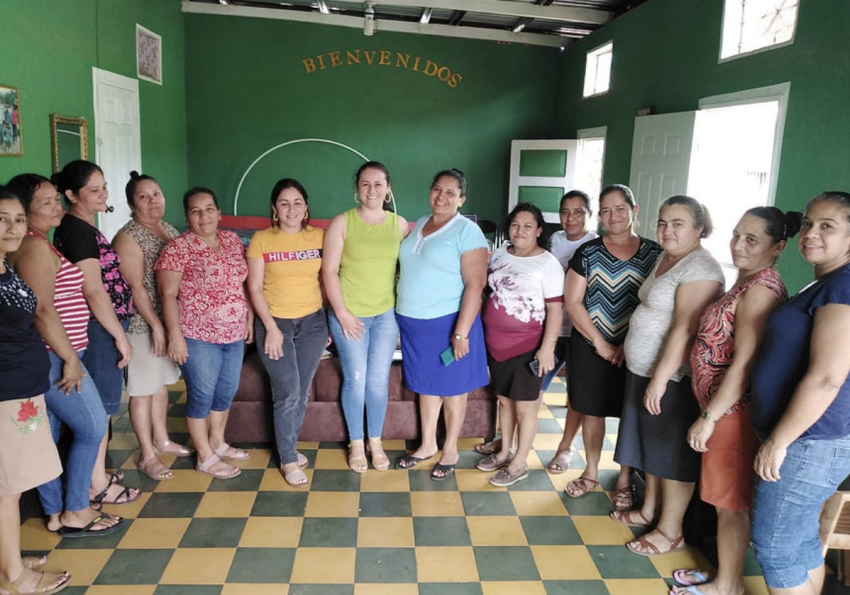
Caption: PHP Energy works closely with women’s organizations in El Níspero.
Photo Caption: PHP Energy
Finally, PHP Energy has taken a leadership role in a local committee for community development led by the municipality. El Níspero hosts a roundtable in which different organizations, both international and Honduran, meet with the purpose of supporting the community. The involvement of PHP Energy’s newest employee has been critical to bring a gender perspective to decision-making. PHP Energy has even started to showcase their efforts on Facebook. “One never stops learning about gender issues,” concludes PHP Energy’s Environmental Manager.
Laying the Groundwork for Other Private Sector Partners
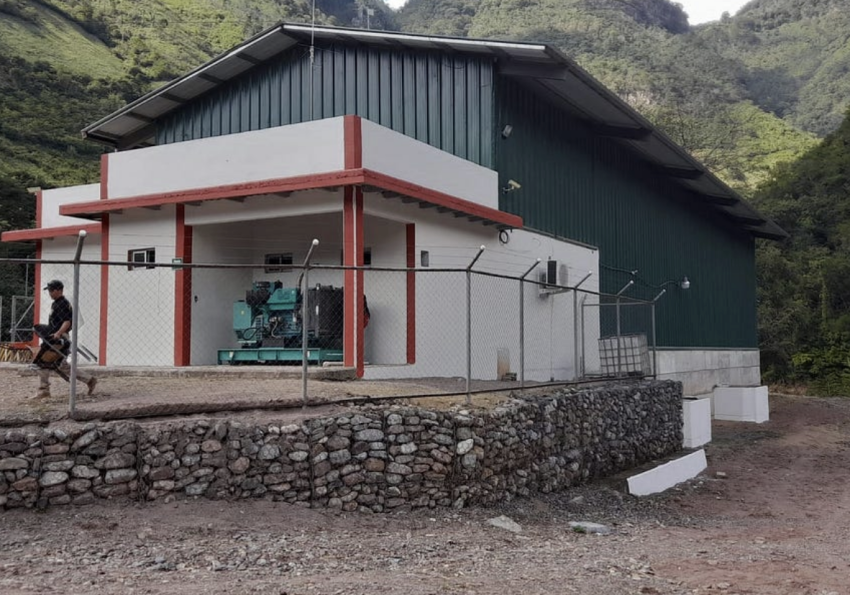
Caption: Worker in front of El Níspero II
Photo Credit: Deetken Impact
A growing body of evidence emphasizes that renewable energy projects and gender equity initiatives cannot be designed and implemented in a silo. Real sustainability is achieved when projects are designed with social challenges, like gender inequity or overlooked rural and indigenous rights, close in mind.
“We understand that PHP Energy is just one project and El Níspero is one community,” states Blain. “But our hope is that this work with PHP Energy subsequently opens the door for similar renewable energy companies, developers, and project sponsors to follow in their footsteps.”
As USAID and other development actors strive to enable women to prosper in the workforce and succeed as entrepreneurs, while promoting an equitable enabling environment for women’s economic security, they can set themselves up for success by taking a holistic approach to interventions. “Just because gender inequality and sustainable energy solutions don’t seem immediately related, doesn’t mean a connection isn’t there…it just means it’s gone unexamined,” concludes Murphy.
This post originally appeared on Marketlinks. Read the original piece here.
Invest
INVEST is working with the USAID Office of Gender Equality and Women’s Empowerment (GenDev) to increase women’s entrepreneurship and economic empowerment through a range of innovative and blended finance approaches. With INVEST support, online lending platform Kiva developed a Gender Equity Assessment Rating (GEAR) tool. The tool, which is meant for financial service providers and is publicly available for use, assesses how an organization considers gender across its work environment. The tool will be used across Kiva’s investment processes with over 180 partners, ultimately reaching approximately 6.4 million borrowers, the majority of whom are women. The hope is that other organizations can also use the results to catalyze meaningful dialogue and organizational transformation to advance gender equality across the financial inclusion sector.